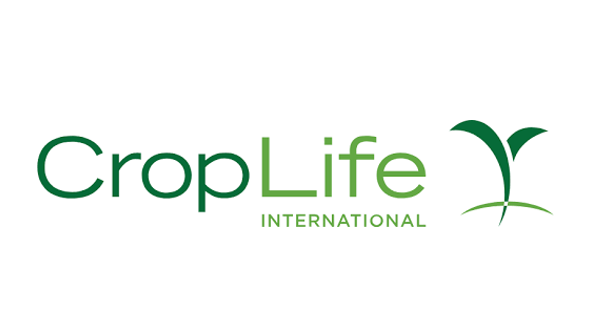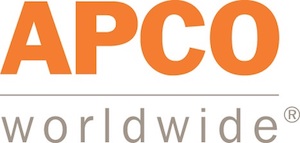Background
CropLife International is a trade association for the world’s main agrochemical and agricultural biotech companies.
The group describes itself as “the voice of the global plant science industry”, and its members include Bayer, Syngenta, BASF, Corteva Agriscience and FMC. CropLife International has 15 member associations listed on its website, including CropLife America, and the European Crop Protection Association (ECPA).1“New Report Shows Positive Evolution of Pesticide Products Since 1960,” CropLife International. Archived November 11, 2020. Archived .pdf on file at DeSmog. 2“Members,” CropLife International. Archived November 9, 2020. Archive.fo URL: https://archive.fo/PSOBu
CropLife’s website says “We champion the role of agricultural innovations in crop protection and plant biotechnology to support and advance sustainable agriculture.”3“About,” CropLife International. Archived November 11, 2020. Archive.fo URL: https://archive.fo/eVW7X
In notes from a May 13, 2016 communications outreach committee conference call, CropLife America records discussions of its 2016 marketing plan, four campaigns, and a paid opportunity with the Discovery Science Channel.4“Communications Outreach Committee Conference Call – May 13, 2016,” CropLife America. Retrieved from DocumentCloud. Archived .pdf on file at DeSmog.
That document includes a draft 2016 marketing plan. The draft lists competitors including Friends of the Earth, EWG, PAN, the Center for Food Safety, the Union for Concerned Scientists, Mother Jones and Food Babe. The draft lists “Allied Organizations” and “Sister Organizations” including USFRA [US Farmers and Ranchers in Action], Oregonians for Food and Shelter, Washington Friends of Farms and Forests, the AFBF [American Farm Bureau Federation], the Alliance for Sustainable Agriculture and others. It also describes a “Growers in the U.S.” campaign, whose partner organizations include USFRA, the AFBF, and the Environmental Defense Fund, among others, with a goal to “Give crop protection a personable face”.5“Communications Outreach Committee Conference Call – May 13, 2016,” CropLife America. Retrieved from DocumentCloud. Archived .pdf on file at DeSmog.
Under the heading “Core Strategy,” the CLA draft plan says “By effectively communication the vital and necessary role pesticides play in the U.S. food system, CLA enhances the ability of its members to succeed.” It describes a “Positioning Goal” to “Provide value to our members by promoting the benefits of pesticides.”6“Communications Outreach Committee Conference Call – May 13, 2016,” CropLife America. Retrieved from DocumentCloud. Archived .pdf on file at DeSmog.
It lists strategies including: “Moms – working with mom blogger who are friends of the industry”. The document also lists a number of “ideal key words” in its search engine strategy. These included; “pesticides”, “Round-Up”, “Glyphosate”, “neonicotinoids”, “poison”; as well as large agribusinesses and lobby groups like “Dow”, “DuPont”, “Syngenta”, “USFRA”, “AFBF”, and “EPA”. “Would the world be a better place without pesticides?” the draft says under the heading Marketing Story. “We believe that without them, our overall quality of life would diminish.” It also lists a plan to “Create way to track partner organizations, congressional staffers, mommy bloggers, etc.”7“Communications Outreach Committee Conference Call – May 13, 2016,” CropLife America. Retrieved from DocumentCloud. Archived .pdf on file at DeSmog.
Stance on Climate Change
CropLife supports precision and regenerative agriculture strategies as a means to address climate change as well as increasing yields. It has previously lobbied against emissions reduction targets for the agriculture sector, and now supports farmers using no-till practices with pesticides to mitigate climate change.8“Mitigating Climate Change,” CropLife International, February 20, 2013. Archived November 11, 2020. Archive.fo URL: https://archive.fo/20Tif
CropLife positions the plant-science industry in a key role to help farmers deal with the challenges of “producing more food for an increasing global population and to minimize greenhouse gas (GHG) emissions.” The group acknowledges that agriculture accounts for “about 14-24 per cent of these emissions.”9“Plant Science Helps Mitigate Climate Change,” CropLife International, April 23, 2014. Archived November 11, 2020. Archive.fo URL: https://archive.fo/XDkX3
CropLife argues that to combat climate change farmers must be as productive on the land as possible and produce higher yields which it says leads to farmers being “under less pressure to clear carbon-rich forests for more farmland.” It argues that, “this avoids billions of tonnes of greenhouse gas emissions that would have occurred through forest clearing.”10CropLife International. “Role of Agriculture in the Future of Climate Change Policy,” YouTube video uploaded by user CropLife International on February 26, 2009. Archived .mpf on file at DeSmog.
CropLife says that “agricultural yields across much of the world are expected to decrease due to climate change”, which it argues makes “plant science solutions critical.” The group says that “since the 1960s, crop yield improvement has reduced human carbon emissions by 34%, accounting for about 13 billion tonnes. Every U.S. dollar invested in climate change preparation measures results in $7 USD in benefits,” according to their website.11“The Story of Climate Change,” CropLife International, April 23, 2014. Archived November 11, 2020. Archive.fo URL: https://archive.fo/ZGTwl
According to NGO Corporate Europe Observatory, the group used the now-deleted “Farmers First” website “to claim to work in the interests of both the climate and farmers.”12“The Corporate Lobbies in Copenhagen,” Corporate Europe Observatory, December 8, 2019. Archived November 11, 2020. Archive.fo URL: https://archive.fo/aRrzC
CropLife advocates GM crops as “climate-friendly” and “lobbied on the US climate legislation through the Alpine Group.” In 2016, CropLife International tweeted a paper by Purdue University’s College of Agriculture which it says predicts “substantial increase” in greenhouse gas emissions if GMOs are banned.13“The Corporate Lobbies in Copenhagen,” Corporate Europe Observatory, December 8, 2019. Archived November 11, 2020. Archive.fo URL: https://archive.fo/aRrzC 14CropLife International. “.@PurdueAg paper predicts substantial increase in #GHG #emissions if #GMOs are banned. http://goo.gl/lhPN39,” Tweet by @CropLifeintl, August 18, 2016. Retrieved from Twitter.com. Archived .png on file at DeSmog.
CropLife warns that increasing temperatures due to climate change will also increase insect populations. It promotes “Integrated Pest Management” as a tool for farmers to combat this impact of climate change.15“Creepy-Crawlies and Climate Change,” CropLife International, December 20, 2018. Archived November 11, 2020. Archive.fo URL: https://archive.fo/VbKV7
CropLife says the combination of “bio-tech-derived plant traits” and pesticides “indirectly reduce emissions” by increasing crop yields which the group claims prevents farmland expanding into areas that could be used as carbon sinks such as rainforests.16“Agriculture Can Adapt to Climate Change,” CropLife International, April 23, 2014. Archived November 11, 2020. Archive.fo URL: https://archive.fo/qMklh
In a statement welcoming governments supporting the International Statement on Agricultural Applications of Precision Biotechnology, CropLife describes precision biotechnology as a tool that will “further enable plant breeders to address global challenges such as food and nutrition security, help farmers adapt to and mitigate climate change conditions, and protect the environment, natural resources, and biodiversity.”17“Plant Science Industry Commends Governments Supporting the International Statement on Agricultural Applications of Precision Biotechnology,” CropLife International, November 5, 2016. Archived November 11, 2020. Archived .pdf on file at DeSmog.
Read more: Digital and Precision Agriculture – Criticisms and Concerns
During the UN’s annual climate talks in December 2019, CropLife tweeted support for no-till farming, a regenerative agriculture technique, and encouraged the practice as a way to “help farmers tackle climate change.”18CropLife International. “Find out how no-till #farming – minimizing #soil disturbance – can help farmers tackle #ClimateChange https://bit.ly/2ABtduh #agriculture #COP25,” Tweet by @CropLifeIntl, December 6, 2019. Retrieved from Twitter.com. Archived .png on file at DeSmog.
CropLife published a five-point guide on its website in 2018 giving advice on how farmers can respond to climate change. The first point encourages farmers to adopt the regenerative agriculture practice of “No-Till Farming – Preventing Soil Disturbance.” The group describes this technique as a “win all-round”, saying that “No-till keeps moisture and nutrients in the soil making farm fields more fertile while allowing farmers to reduce their use of farm equipment and fossil fuels.” CropLife also says that no-till techniques moderate the effects of climate change.19“5 Ways Farmers Can Respond To Climate Change,” CropLife International, December 20, 2018. Archived November 11, 2020. Archive.fo URL: https://archive.fo/SLWnh
CropLife says farmers can also respond to climate change using heat-tolerant crops, drought-tolerant maize, use of pesticides and more efficient use of nitrogen fertilizer.20“5 Ways Farmers Can Respond To Climate Change,” CropLife International, December 20, 2018. Archived November 11, 2020. Archive.fo URL: https://archive.fo/SLWnh
In a post on CropLife’s website titled ‘The Fast Lane To Carbon Savings’ the group hails biotech crops as a way to tackle climate change. It gives the example: “by using herbicide-tolerant biotech crops, farmers can use crop protection products, instead of tillage, to remove weeds from the land.”21“The Fast Lane to Carbon Savings,” CropLife International, December 8, 2015. Archived November 11, 2020. Archive.fo URL: https://archive.fo/Kgo00
“By leaving the soil untilled, farmers build up the nutrients in their fields, preserve topsoil and keep carbon in the soil. Also, no-till reduces the number of tractor passes in the field to cut the use of tractor fuel,” it says.22“The Fast Lane to Carbon Savings,” CropLife International, December 8, 2015. Archived November 11, 2020. Archive.fo URL: https://archive.fo/Kgo00
CropLife says that “existing herbicide-tolerant biotech crops allow for reduced or no tillage, sparing the use of farm equipment and fuel, and thereby reducing GHG emissions,” claiming “the use of no-till practices and modern, targeted herbicides captures millions of tonnes of carbon dioxide.”23“Plant Science Helps Mitigate Climate Change,” CropLife International, April 23, 2014. Archived November 11, 2020. Archive.fo URL: https://archive.fo/XDkX3
CropLife said in a January 2019 tweet that pesticides “facilitate” no-till farming.24CropLife International. “No-till now covers more than 140 million hectares globally preserving #soil #biodiversity and lowering greenhouse gas emissions. Read more about No-till farming and pesticides: http://bit.ly/2H0Vi3P #CropTech,” Tweet by @CropLifeIntl, January 27, 2019. Retrieved Twitter.com. Archived .png on file at DeSmog.
Read more: Regenerative Agriculture – Criticisms and Concerns
Role in Pesticides Controversy
Leading members of CropLife International make “more than 35% of their sales from pesticides classed as ‘highly hazardous’ to people, animals or ecosystems” an Unearthed investigation found in February 2020.25Crispin Dowler. “Revealed: The pesticide giants making billions on toxic and bee-harming chemicals,” Unearthed, February 2, 2020. Archived August 20, 2020. Archive.fo URL: http://archive.fo/lPZS5
“The investigation found that close to half (41%) of the leading products of the agrochemical giants BASF, Bayer, Corteva, FMC and Syngenta contained at least one HHP” (highly hazardous pesticide).26Crispin Dowler. “Revealed: The pesticide giants making billions on toxic and bee-harming chemicals,” Unearthed, February 2, 2020. Archived August 20, 2020. Archive.fo URL: http://archive.fo/lPZS5
The Unearthed report highlighted that: “Between them these companies control close to two thirds of the global agrochemicals market, and comprise five out of six members of the influential lobby group CropLife International.”27Crispin Dowler. “Revealed: The pesticide giants making billions on toxic and bee-harming chemicals,” Unearthed, February 2, 2020. Archived August 20, 2020. Archive.fo URL: http://archive.fo/lPZS5
CropLife responded saying “that its members reviewed their entire portfolios between 2015 and 2016 and concluded that only 15% of their products were HHPs.”28Crispin Dowler. “Revealed: The pesticide giants making billions on toxic and bee-harming chemicals,” Unearthed, February 2, 2020. Archived August 20, 2020. Archive.fo URL: http://archive.fo/lPZS5
A 2020 investigation by The Intercept explored how bee numbers were declining at a rapid rate due to pesticide use and the ways in which large agribusinesses were fuelling “a sophisticated information war” which kept pesticides on the market. The article explained how CropLife America, Bayer, and Syngenta had launched the Honey Bee Health Coalition, a group coordinated by supposedly an independent third party organisation, the Keystone Policy Center – however this Center was being funded by major corporations, like Bayer and Syngenta.29Lee Fang. “The Playbook for Poisoning the Earth,” The Intercept, January 18, 2020. Archived November 11, 2020. Archive.fo URL: https://archive.fo/wKiF6
Funding
CropLife International is member organisation. Its website lists Bayer, BASF, Corteva, FMC, Syngenta and Sumitomo Chemical as corporate members.30“Members,” CropLife International. Archived November 9, 2020. Archive.fo URL: https://archive.fo/PSOBu
The website of the CropLife Foundation, the organisation’s charitable arm, says it is funded by:31“Funders,” CropLife Foundation. Archived November 11, 2020. Archive.fo URL: https://archive.fo/hBNT6
- AMVAC
- Arysta LifeSciences
- BASF
- Bayer CropScience
- Cheminova
- Chemtura
- Coastal AgroBusiness
- Crop Production Services
- Dow AgroSciences
- Drexel Chemical
- Dupont Crop Protection
- FMC
- Growmark
- ISK Biosciences
- Makhteshim Agan
- MGK
- Monsanto
- Nichino
- Nufarm
- PBI Gordon
- Spicam Advan
- Syngenta Crop Protection
- Valent
- Winfield Solutions
Lobbying
According to OpenSecrets.org, Croplife America spent $1,561,323 on lobbying in 2019 and spent at least $2 million each year between 2010 and 2018. In the same period, they contributed $735,138 to the Republican Party. In the 2020 election cycle, Croplife America’s top monetary recipient was Democratic politician and Chairman of the House Committee on Agriculture Collin Peterson, donating $10,000 through its PACs.32“CropLife America,” OpenSecrets. Archived November 11, 2020. Archive.fo URL: https://archive.fo/DvG8F 33“CropLife America – Lobbying,” OpenSecrets. Archived November 11, 2020. Archive.fo URL: https://archive.fo/Yvpaa
In 2016, CropLife America and the European Crop Protection Association were awarded the Democracy for Sale Award by environmental NGO Friends of the Earth, for the way in which both organisations shaped pesticides regulation using the Transatlantic Trade and Investment Partnership (TTIP). Fabian Flues, a trade campaigner at Friends of the Earth Europe, said there was “wide-spread resistance” to trade deals like the TTIP as “they are designed to benefit multinational corporations on both sides of the Atlantic to the detriment of people and the environment.”34“ECPA and CropLife America crowned 2016 TTIP champions,” Friends of the Earth Europe, November 3, 2016. Archived November 11, 2020. Archive.fo URL: https://archive.fo/ohdm9
Monsanto reportedly spent $528,000 on lobbying with CropLife International in the US, according to a 2016 report on Monsanto by Corporate Europe Observatory, with a further $350,483 on CropLife America.35“Monsanto Lobbying: An Attack on Us, Our Planet and Democracy,” Corporate Europe, 2016. Archived November 11, 2020. Archived .pdf on file at DeSmog.
A 2015 report by the Center for International Environmental Law analysed the way CLA and the ECPA’s proposal for regulatory cooperation under the TTIP, and how it demonstrated that the goal of the organisations was “increasing trade while increasing the risk of harm to European and American citizens.”36“Lowest Common Denominator: How the Proposed US-EU Trade Deal Threatens to Lower Standards of Protection from Toxic Pestcides (January 2015),” Center for International Environmental Law. Archived November 11, 2020. Archive.fo URL: https://archive.fo/lRoOj
Affiliations
Croplife International’s website lists Bayer, BASF, Corteva, FMC, Syngenta and Sumitomo Chemical as corporate members. It also lists the following Member Associations:37“Members,” CropLife International. Archived November 9, 2020. Archive.fo URL: https://archive.fo/PSOBu
- AfricaBio
- AgroBio Brazil
- AgroBio Mexico
- ArgenBio
- Biotechnology Innovation Organization, Food & Ag
- CBI Japan
- CIB Brazil
- CropLife Africa Middle East
- CropLife America
- CropLife Asia
- CropLife Canada
- CropLife Latin America
- European Crop Protection Association
- EuropaBio
- Japan Crop Protection Association
The UK’s Crop Protection Association is also a member.38“Members,” CropLife International. Archived November 9, 2020. Archive.fo URL: https://archive.fo/PSOBu
An internal CropLife America document from 2016 lists US Farmers and Ranchers in Action as an “allied organization”.39“Communications Outreach Committee Conference Call – May 13, 2016,” CropLife America. Retrieved from DocumentCloud. Archived .pdf on file at DeSmog.
Other Resources
Resources
- 1“New Report Shows Positive Evolution of Pesticide Products Since 1960,” CropLife International. Archived November 11, 2020. Archived .pdf on file at DeSmog.
- 2“Members,” CropLife International. Archived November 9, 2020. Archive.fo URL: https://archive.fo/PSOBu
- 3“About,” CropLife International. Archived November 11, 2020. Archive.fo URL: https://archive.fo/eVW7X
- 4“Communications Outreach Committee Conference Call – May 13, 2016,” CropLife America. Retrieved from DocumentCloud. Archived .pdf on file at DeSmog.
- 5“Communications Outreach Committee Conference Call – May 13, 2016,” CropLife America. Retrieved from DocumentCloud. Archived .pdf on file at DeSmog.
- 6“Communications Outreach Committee Conference Call – May 13, 2016,” CropLife America. Retrieved from DocumentCloud. Archived .pdf on file at DeSmog.
- 7“Communications Outreach Committee Conference Call – May 13, 2016,” CropLife America. Retrieved from DocumentCloud. Archived .pdf on file at DeSmog.
- 8“Mitigating Climate Change,” CropLife International, February 20, 2013. Archived November 11, 2020. Archive.fo URL: https://archive.fo/20Tif
- 9“Plant Science Helps Mitigate Climate Change,” CropLife International, April 23, 2014. Archived November 11, 2020. Archive.fo URL: https://archive.fo/XDkX3
- 10CropLife International. “Role of Agriculture in the Future of Climate Change Policy,” YouTube video uploaded by user CropLife International on February 26, 2009. Archived .mpf on file at DeSmog.
- 11“The Story of Climate Change,” CropLife International, April 23, 2014. Archived November 11, 2020. Archive.fo URL: https://archive.fo/ZGTwl
- 12“The Corporate Lobbies in Copenhagen,” Corporate Europe Observatory, December 8, 2019. Archived November 11, 2020. Archive.fo URL: https://archive.fo/aRrzC
- 13“The Corporate Lobbies in Copenhagen,” Corporate Europe Observatory, December 8, 2019. Archived November 11, 2020. Archive.fo URL: https://archive.fo/aRrzC
- 14CropLife International. “.@PurdueAg paper predicts substantial increase in #GHG #emissions if #GMOs are banned. http://goo.gl/lhPN39,” Tweet by @CropLifeintl, August 18, 2016. Retrieved from Twitter.com. Archived .png on file at DeSmog.
- 15“Creepy-Crawlies and Climate Change,” CropLife International, December 20, 2018. Archived November 11, 2020. Archive.fo URL: https://archive.fo/VbKV7
- 16“Agriculture Can Adapt to Climate Change,” CropLife International, April 23, 2014. Archived November 11, 2020. Archive.fo URL: https://archive.fo/qMklh
- 17“Plant Science Industry Commends Governments Supporting the International Statement on Agricultural Applications of Precision Biotechnology,” CropLife International, November 5, 2016. Archived November 11, 2020. Archived .pdf on file at DeSmog.
- 18CropLife International. “Find out how no-till #farming – minimizing #soil disturbance – can help farmers tackle #ClimateChange https://bit.ly/2ABtduh #agriculture #COP25,” Tweet by @CropLifeIntl, December 6, 2019. Retrieved from Twitter.com. Archived .png on file at DeSmog.
- 19“5 Ways Farmers Can Respond To Climate Change,” CropLife International, December 20, 2018. Archived November 11, 2020. Archive.fo URL: https://archive.fo/SLWnh
- 20“5 Ways Farmers Can Respond To Climate Change,” CropLife International, December 20, 2018. Archived November 11, 2020. Archive.fo URL: https://archive.fo/SLWnh
- 21“The Fast Lane to Carbon Savings,” CropLife International, December 8, 2015. Archived November 11, 2020. Archive.fo URL: https://archive.fo/Kgo00
- 22“The Fast Lane to Carbon Savings,” CropLife International, December 8, 2015. Archived November 11, 2020. Archive.fo URL: https://archive.fo/Kgo00
- 23“Plant Science Helps Mitigate Climate Change,” CropLife International, April 23, 2014. Archived November 11, 2020. Archive.fo URL: https://archive.fo/XDkX3
- 24CropLife International. “No-till now covers more than 140 million hectares globally preserving #soil #biodiversity and lowering greenhouse gas emissions. Read more about No-till farming and pesticides: http://bit.ly/2H0Vi3P #CropTech,” Tweet by @CropLifeIntl, January 27, 2019. Retrieved Twitter.com. Archived .png on file at DeSmog.
- 25Crispin Dowler. “Revealed: The pesticide giants making billions on toxic and bee-harming chemicals,” Unearthed, February 2, 2020. Archived August 20, 2020. Archive.fo URL: http://archive.fo/lPZS5
- 26Crispin Dowler. “Revealed: The pesticide giants making billions on toxic and bee-harming chemicals,” Unearthed, February 2, 2020. Archived August 20, 2020. Archive.fo URL: http://archive.fo/lPZS5
- 27Crispin Dowler. “Revealed: The pesticide giants making billions on toxic and bee-harming chemicals,” Unearthed, February 2, 2020. Archived August 20, 2020. Archive.fo URL: http://archive.fo/lPZS5
- 28Crispin Dowler. “Revealed: The pesticide giants making billions on toxic and bee-harming chemicals,” Unearthed, February 2, 2020. Archived August 20, 2020. Archive.fo URL: http://archive.fo/lPZS5
- 29Lee Fang. “The Playbook for Poisoning the Earth,” The Intercept, January 18, 2020. Archived November 11, 2020. Archive.fo URL: https://archive.fo/wKiF6
- 30“Members,” CropLife International. Archived November 9, 2020. Archive.fo URL: https://archive.fo/PSOBu
- 31“Funders,” CropLife Foundation. Archived November 11, 2020. Archive.fo URL: https://archive.fo/hBNT6
- 32“CropLife America,” OpenSecrets. Archived November 11, 2020. Archive.fo URL: https://archive.fo/DvG8F
- 33“CropLife America – Lobbying,” OpenSecrets. Archived November 11, 2020. Archive.fo URL: https://archive.fo/Yvpaa
- 34“ECPA and CropLife America crowned 2016 TTIP champions,” Friends of the Earth Europe, November 3, 2016. Archived November 11, 2020. Archive.fo URL: https://archive.fo/ohdm9
- 35“Monsanto Lobbying: An Attack on Us, Our Planet and Democracy,” Corporate Europe, 2016. Archived November 11, 2020. Archived .pdf on file at DeSmog.
- 36“Lowest Common Denominator: How the Proposed US-EU Trade Deal Threatens to Lower Standards of Protection from Toxic Pestcides (January 2015),” Center for International Environmental Law. Archived November 11, 2020. Archive.fo URL: https://archive.fo/lRoOj
- 37“Members,” CropLife International. Archived November 9, 2020. Archive.fo URL: https://archive.fo/PSOBu
- 38“Members,” CropLife International. Archived November 9, 2020. Archive.fo URL: https://archive.fo/PSOBu
- 39“Communications Outreach Committee Conference Call – May 13, 2016,” CropLife America. Retrieved from DocumentCloud. Archived .pdf on file at DeSmog.





